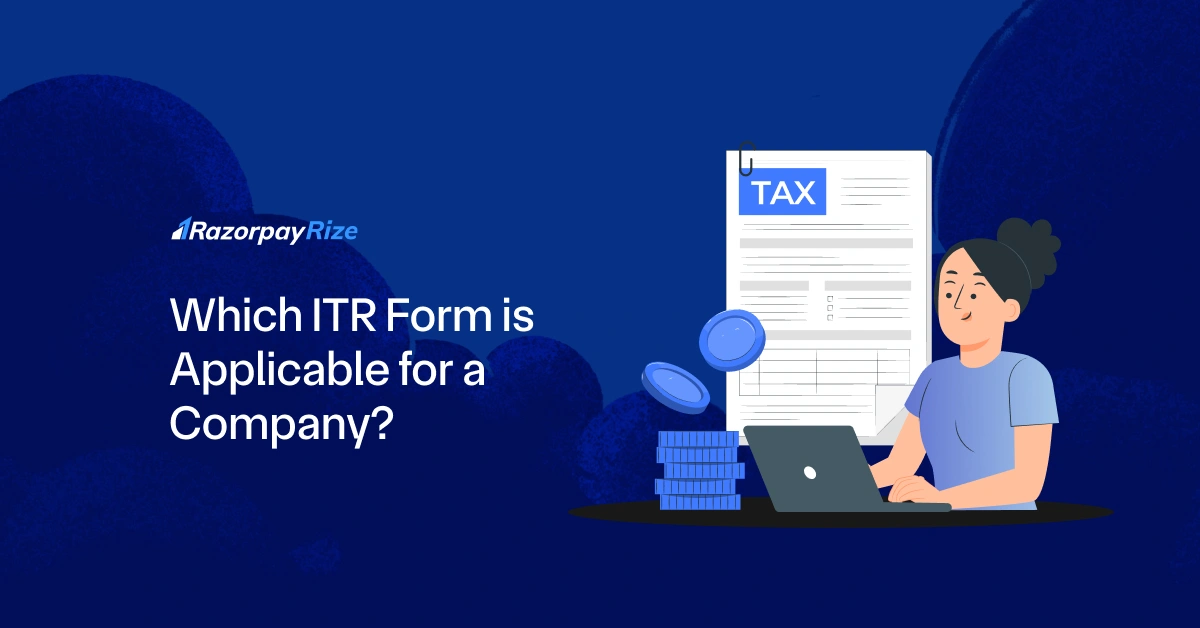Starting a company with one or more co-founders is one of the most exciting parts of the entrepreneurial journey. But amidst the rush of building products, finding customers, and chasing early traction, one foundational step often gets overlooked: putting a co-founders agreement in place.
The Co-founders Agreement lays out how the founding team will operate, make decisions, handle equity, resolve disagreements, and plan for the unexpected. Without it, even the strongest partnerships can run into miscommunication, conflict, or costly misunderstandings down the road.
In this article, we’ll break down the key elements of a co-founders agreement, explain why it’s essential from day one, and guide you through the decisions you’ll want to document before your startup grows.
Table of Contents
Understanding the Importance of a Co-Founder Agreement
A co-founders agreement is a governance framework. It provides clarity on expectations, defines legal boundaries, and establishes protocols for decision-making and dispute resolution.
Without it, startups risk misalignment, equity disputes, or founder exits that can derail momentum. Having this agreement from day one ensures:
- Legal protection for all founders
- Clear accountability
- Faster resolution in case of conflicts
- Long-term business stability
How to Determine Roles?
Before you split the equity or assign job titles, align on why you’re building this company. Once your mission is clear, it becomes easier to define what roles each founder should play.
Not all founders are the same, and not all will lead the same functions. Role clarity prevents overlap, power struggles, and decision-making delays.
Here’s a quick overview of typical leadership roles:
- CEO (Chief Executive Officer): Sets vision, makes high-level decisions, and manages investors.
- COO (Chief Operating Officer): Manages day-to-day operations, hiring, and internal workflows.
- CFO (Chief Financial Officer): Oversees finances, fundraising, and budgeting.
- President: Often works alongside the CEO, focusing on strategy execution or external relations.
- CMO (Chief Marketing Officer): Leads branding, marketing, and growth strategy.
- CTO (Chief Technology Officer): Drives product development and tech architecture.
Ready to make your startup official? Kickstart your Startup registration process today and build a strong legal foundation.
How to Split Equity?
One of the trickiest parts of a co-founder agreement is deciding who gets what percentage of the company.
Spoiler alert: Equal splits are often unfair. While it might feel diplomatic to go 50/50 (or 33/33/33), it rarely reflects the actual contributions of each founder. Equity should reward value creation, not just presence.
Consider these factors:
- Who initiated the idea?
- Level of early involvement and contribution
- Full-time vs part-time commitment
- CEO or leadership responsibilities
- Prior experience, networks, and domain expertise
It’s advisable to use structured frameworks or equity calculators and ensure all discussions are documented. Vesting schedules (typically four years with a one-year cliff) should also be agreed upon and reflected in the agreement.
Compensation and Salary Expectations
Most early-stage startups operate with limited capital. Founders often defer salaries or draw nominal compensation. However, clarity on current and future remuneration is essential.
The agreement should include:
- Initial salary (if any) or deferred compensation model
- Milestones or triggers for compensation reviews (e.g., seed funding, profitability)
- Equity-to-cash trade-offs, especially for operational founders
- Provisions for salary revisions approved by a board or mutual consent
Decision-Making and Dispute Resolution
Defining decision rights helps prevent operational gridlock and ensures strategic alignment. The co-founders agreement should outline the following:
- Voting rights: Specify which decisions require a majority, supermajority, or unanimous consent (e.g., capital raise, hiring key executives, M&A decisions).
- Dispute resolution mechanisms: Include mediation and arbitration clauses to resolve disagreements outside of court.
- Deadlock provisions: Outline how to handle situations where founders are split, potentially via third-party adjudicators or rotating authority.
- Exit protocols: Determine how decisions are made in case a founder decides to leave or is asked to step down.
Exit Strategies and Buyout Clauses
Exit events, whether planned or unforeseen, can significantly impact the startup’s equity structure. A co-founders agreement should detail:
- Voluntary exit protocols: Including share sale rights, notice periods, and replacement planning.
- Involuntary exit terms: For cause (e.g., misconduct) or no-fault exits (e.g., health issues).
- Buyout clauses: How shares are valued (e.g., pre-agreed formula, external valuation), who has the first right to buy, and what triggers a forced sale.
- Non-compete clauses: Restrictions on joining or starting competing ventures post-exit.
Without a clear exit plan, founder departures can become messy, expensive, and emotionally draining.
Non-Disclosure Agreements (NDAs)
Startups thrive on ideas, data, and speed. A loose-lipped founder or ex-founder can derail all of that. To protect your IP, customers, and strategy, include a strong non-disclosure clause in the co-founder agreement. It should cover:
- What qualifies as “confidential information”?
- How long the NDA lasts (often 1–3 years post-exit)
- Consequences of breaching the NDA
Founders should also agree on how sensitive materials like business plans, prototypes, and user data are handled upon exit.
Death, Disability, and Divorce Clauses
Contingency planning for life events is often overlooked but is essential to safeguard the business. Your agreement should include:
- Death clause: Specifies who inherits equity, buyback options for the company, and whether heirs receive any operational role.
- Disability clause: Details how long a founder can be inactive before reevaluation and whether shares can be repurchased or roles reassigned.
- Divorce clause: Ensures founder shares don’t get transferred to a spouse, with provisions for company buyback to retain control.
These clauses protect both the business and surviving founders from unforeseen legal and financial disruptions.
Frequently Asked Questions
Private Limited Company
(Pvt. Ltd.)
- Service-based businesses
- Businesses looking to issue shares
- Businesses seeking investment through equity-based funding
Limited Liability Partnership
(LLP)
- Professional services
- Firms seeking any capital contribution from Partners
- Firms sharing resources with limited liability
One Person Company
(OPC)
- Freelancers, Small-scale businesses
- Businesses looking for minimal compliance
- Businesses looking for single-ownership
Private Limited Company
(Pvt. Ltd.)
- Service-based businesses
- Businesses looking to issue shares
- Businesses seeking investment through equity-based funding
One Person Company
(OPC)
- Freelancers, Small-scale businesses
- Businesses looking for minimal compliance
- Businesses looking for single-ownership
Private Limited Company
(Pvt. Ltd.)
- Service-based businesses
- Businesses looking to issue shares
- Businesses seeking investment through equity-based funding
Limited Liability Partnership
(LLP)
- Professional services
- Firms seeking any capital contribution from Partners
- Firms sharing resources with limited liability
Frequently Asked Questions
What are the points of a co-founder agreement?
A co-founder agreement typically includes the following key components:
- Equity Ownership & Vesting Schedule
- Roles & Responsibilities
- Compensation & Salary Terms
- Decision-Making Protocols
- Dispute Resolution Mechanisms
- Exit Clauses & Buyout Terms
- Confidentiality (NDA) Provisions
- IP Assignment
- Death, Disability, and Divorce Clauses
What are the 3 main reasons you should want a co-founder?
- Complementary Skills
A strong co-founder brings expertise you may not have, be it in tech, operations, sales, or strategy, helping you build faster and smarter. - Shared Responsibility & Emotional Support
Entrepreneurship is a rollercoaster. Having someone equally invested in the highs and lows provides mental resilience and shared accountability. - Stronger Investor Appeal
Many investors prefer teams over solo founders. A balanced co-founding team signals collaboration, diverse thinking, and execution capability.
Is a founder's agreement legally binding?
Yes, a founder’s agreement or co-founders agreement is legally binding if it’s properly drafted and signed by all parties. It is treated like any other contract under contract law and can be enforced in court or through arbitration, depending on the jurisdiction and terms stated.
What is the difference between a founder and a co-founder agreement?
Founder Agreement and Co-founder Agreement are often used interchangeably, but there can be subtle differences based on context:
- Founder Agreement usually refers to an agreement between a solo founder and the company, often covering IP assignment, vesting, and equity terms.
- Co-founder Agreement refers to a contract between multiple founders of the same startup, defining how they work together, split ownership, make decisions, and handle disputes.
In practice, for teams of two or more founders, a co-founder agreement is more relevant and comprehensive.






.webp)











